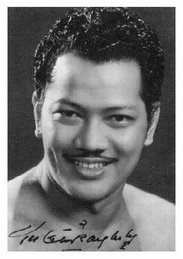Here some advice for the major DO's and DON'T in the Dutch business world. Obviously not everything is pertinent, as it depends very much on where he or she comes from.
When working or doing business with the Dutch:
Big DO's
- Do come early well-prepared, with detailed and practical information on your products, needs and capacities;
- Do come to the heart of the matter quickly, within a few minutes at the most;
- Do try present yourself as punctual, modest and practical;
- Do try to give a positive but realistic and not 'overdone' presentation of your personally, your product and your company;
- Do concentrate seriously on the matter in hand, making only occasional small talk or jokes, until the business itself is over and done with;
- So state your opinions clearly and without too much emotions;
- Do consult your Dutch colleagues on all levels (but don't take up too much of their time!);
- Do be prepared for criticism and learn to deal with it calmly;
- Do be critical and outspoken about the Dutch too - they expect and appreciate it;
- Do be open to compromise during any form of negotiation;
- Do take initiatives and don't worry about losing face by being creative or by asking questions;
- Do bring up alternatives when something is said to be impossible;
- Do ask Dutch colleagues their opinion on your performance (but be prepared for every honest answers, and remember that they indicate involvement);
- Do tell Dutch colleagues your views on their working environment and ways of doing things; 'constructive criticism' will be appreciated;
- Do ask subordinates for their opinion also, and show interest in their personal backgrounds;
- Do tell your colleagues and subordinates about your own personal background without bragging unnecessarily;
- Do participate in company rituals such as birthday 'coffee and cake', the 'borrel', Christmas celebration, etc;
- Do try to learn to speak Dutch, and do practice it even when the Dutch speak English, or another familiar language, to you;
- Do read and ask questions about Dutch history and society; this will help you to understand the Dutch better;
- Do try to keep yourself as well as your colleagues from generalising and stereotyping.
The Big DON'T
- Don't bring (or expect to be offered) expensive business gifts;
- Don't, during the introductions, or relationship with important influential family connections, or relationship with important people;
- Don't overdress, see what other people are wearing, and when in doubt, ask Dutch advice;
- Don't ask direct questions om income and personal political views;
- Don't assume that everyone is married and has children;
- Don't expect lavish meals or sightseeing tours in town. (But if you are offered them, it is obviously a good sign);
- Don't, as an in-company visitor to Dutch headquarters, expect to be booked into the very best hotel in town (and don't feel compelled to do that for them either when they come to visit you!);
- Don't expect intensive personal coaching by people from the host company outside of working hours (and when they visit you, ask them if they perhaps prefer to be alone);
- Don't, when working with Dutch people, be 'bossy' to subordinates;
- Don't expect the Dutch to come for a drink after work, but do continue to ask...one day they will come;
- Don't, when selling, forget to mention any environmental advantage of your product;
- Don't expect (and certainly don't ask for) personal favours outside of a transaction;
- Don't shower Dutch people with compliments; it makes them uneasy; try to keep mind and emotions somewhat separated during working hours;
- Don't begin long discussion on philosophy, literature art, etc during introduction, business lunches or during working hours.

By Jacob Vossestien - Dealing with the Dutch (the cultural content of business and work in the Netherlands)
1st p/s: He is a human geographer and social anthropologist who has visited more than 60 contries. Since 1984 he has been a cross-cultural trainer, mainly at the Royal Tropical Institute (KIT) in Amsterdam.
2nd p/s: Pas ni, we will talk about Malaysian author pulak
3rd p/s: What actually 'p/s' means?
until then














No comments:
Post a Comment